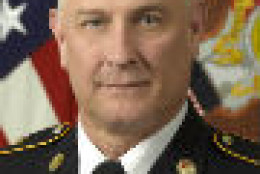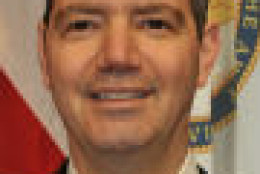On DoD
-
As part of a major public health campaign called the "performance triad" the Army wants its soldiers to have healthy exercise, nutrition and sleep routines.
February 09, 2015 -
The Army is revisiting its approach to mission command and leaning on improved IT networks as one way to make its forces more flexible.
February 06, 2015 -
The Army's budget request details a branch in transition, from both a military and financial perspective.
February 05, 2015 -
The Navy highlighted several of these applied research technologies at the conference, including the rail gun, the shipboard autonomous firefighting robot (SAFFiR), an autonomous swarmboat, and an autonomous flying wing underwater glider.
February 05, 2015 -
The Office of Naval Research has an update to its strategic plan and a new chief to help to put those priorities in place. Rear Adm. Mat Winter, the new chief of Naval Research, has been on the job for about four weeks. Federal News Radio's Lauren Larson spoke to the new ONR chief at the Naval Future Force Science and Technology expo. He tells her what ONR looks for when updating its strategic plan.
February 04, 2015 -
The Navy has a powerful software system that dramatically reduces the time it takes to plan safe submarine missions. That same software recently made its way above the surface and was installed on the guided missile cruiser, USS Mobile Bay. Dr. Kip Krebs, program officer in the Office of Naval Research's Warfighter Performance Department, joined Tom Temin on the Federal Drive with more on the app's uses.
January 30, 2015 -
The Air Force's decision comes after the Veterans Affairs IG found alleged procurement fraud, intimidation and threats against a federal official. FedBid says it's cooperating with the Air Force and believes it took the necessary steps to fix the problems.
January 28, 2015 -
Friday is the last day of service for Sergeant Major of the Army Ray Chandler. He will retire as the top enlisted man in the Army after nearly 34 years of service. He's the 14th Sergeant Major, and his main job is advisor to Army Chief of Staff General Ray Odierno. On In Depth with Francis Rose, he shared what thoughts are top-of-mind for him as he prepares to wind down his service.
January 28, 2015 -
The Navy is funding robotic door greeters to learn more about potential futuristic training options for the Marine Corps.
January 28, 2015 -
Mark Orndorff, risk management executive & chief information officer for the Defense Information Systems Agency, joins Federal News Radio for a free online chat to discuss his agency's new risk management organization and DoD's evolving approach to cybersecurity.
January 27, 2015 -
The new Installation and Mission Support Center will be based at Joint Base San Antonio, the Air Force announced this week - disappointing other contenders in the communities around Scott AFB in Illinois, Joint Base Langley-Eustis in Virginia and Wright-Patterson AFB in Ohio.
January 26, 2015 -
When the Department of Veterans Affairs started building a new state-of-the-art hospital in Denver, it was supposed to cost $600 billion and be finished by 2014. Today, it's less than half complete, the price tag has doubled and it's likely to go even higher. As Federal News Radio's Jared Serbu reports, the VA is turning to the Army Corps of Engineers to help avoid similar blunders in the future.
January 22, 2015 -
Army scientists and engineers are advancing sensors research in hopes of giving future soldiers enhanced situational awareness. Soldiers of 2025 and beyond may wear sensors to help detect and prevent threats like dehydration or elevated blood pressure. Dr. Donald Reago is the director of the Night Vision and Electronic Sensors Directorate at Fort Belvoir, Virginia. He joined Tom Temin on the Federal Drive with more on the possibilities.
January 22, 2015 -
As is typical, Defense leaders are not sharing many details about next year's budget proposal prior to its expected February release. But the Air Force is making clear it's gearing up for another fight on BRAC and aircraft divestitures, and thinks it might win this time.
January 19, 2015 -
New acquisition initiatives are out from the Air Force. The search for innovation in acquisition takes many IT leaders in government to Silicon Valley. August Cole is Director of the Art of Future War program in the Brent Scowcroft Center on International Security at the Atlantic Council. He's also a writer-in-residence at Avascent. On In Depth with Francis Rose, he said the defense industrial base should engage Silicon Valley.
January 16, 2015








